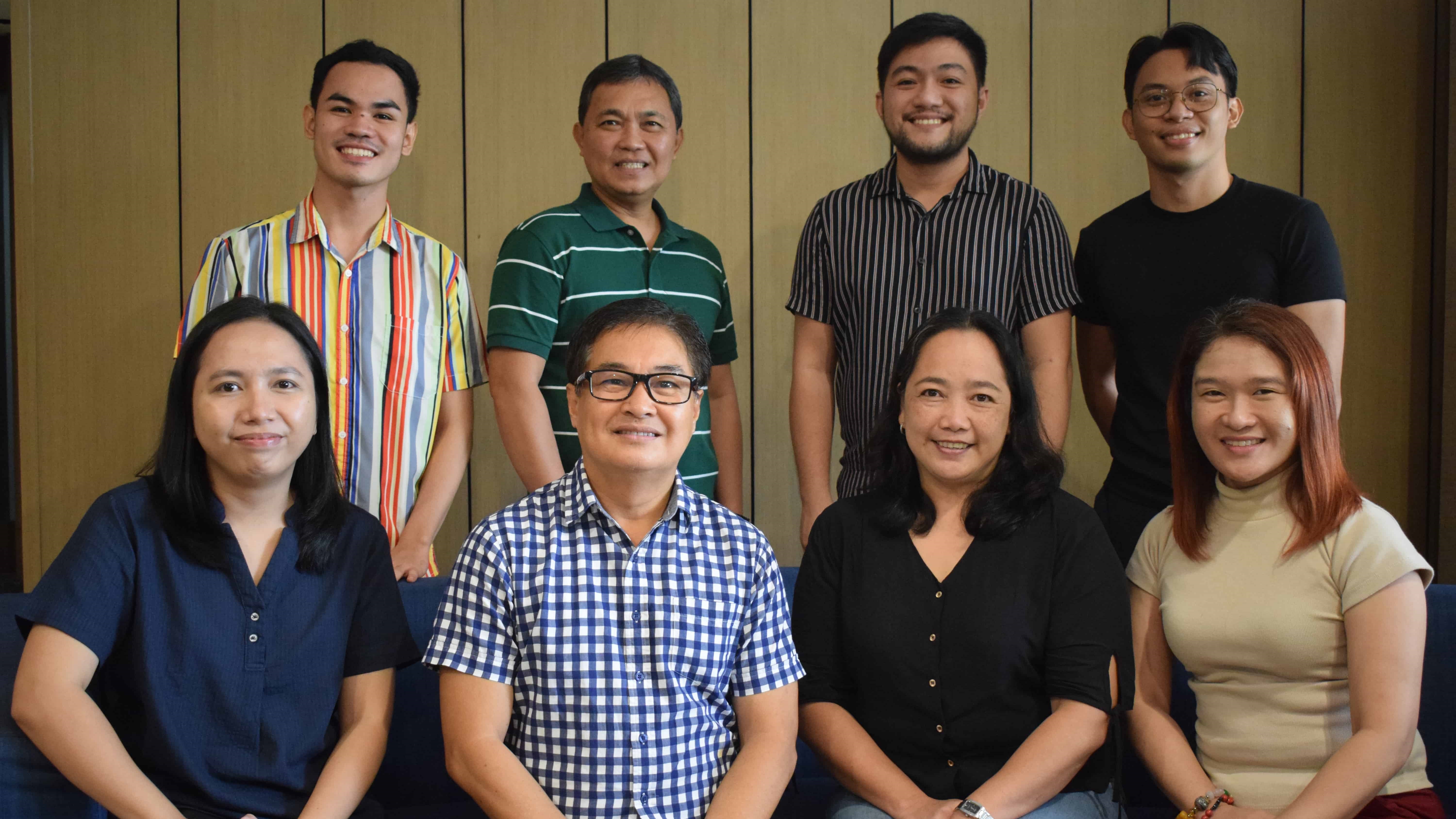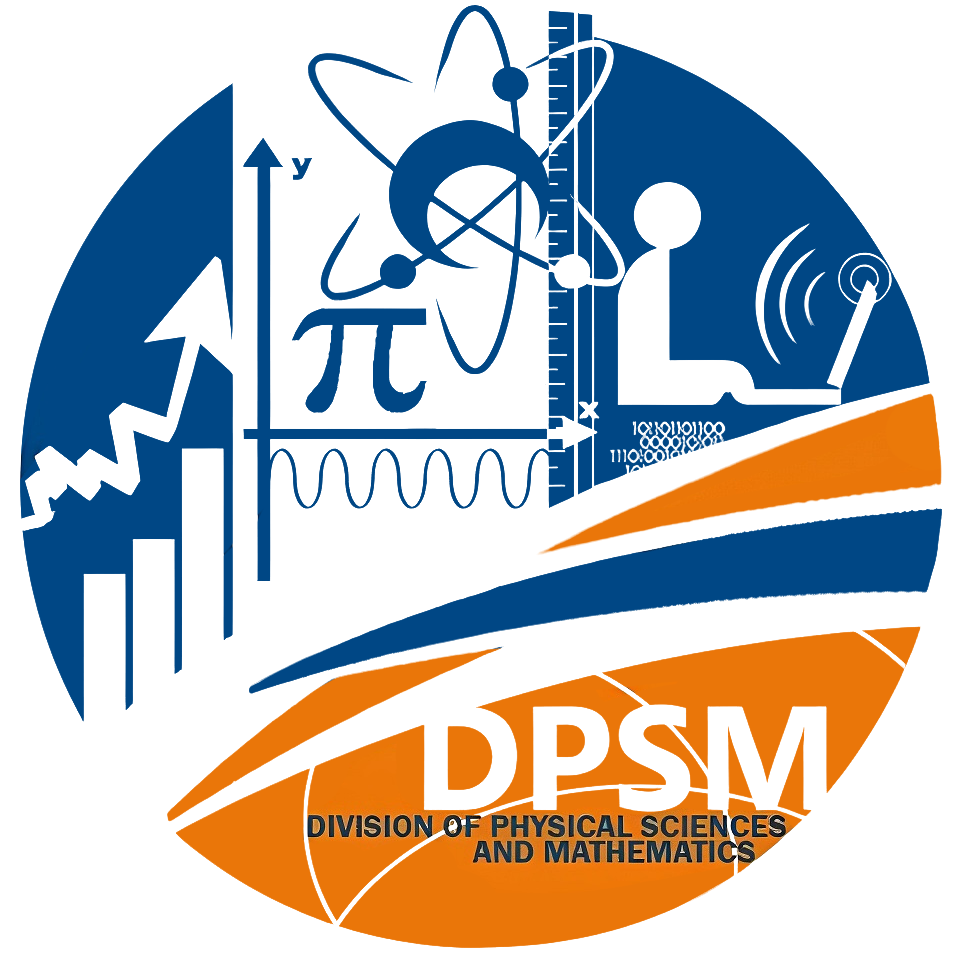The Bachelor of Science in Statistics program of UP Visayas was first implemented in June 2000. It is a four-year course that provides students with a sound understanding of the underlying theories and applications of statistical methods.
The faculty members of the Statistics cluster of the Division of Physical Sciences and Mathematics are well-equipped with statistical training and experience from various institutions such as UP Diliman, University Libre de Bruxelles, University of Pittsburgh, and Western Michigan University.
The program equips students with skills and competencies through various teaching and learning approaches that facilitate attainment of the nine learning outcomes, which are categorized as subject – specific and generic outcomes. These Program Learning Outcomes (PLOs) are aligned with the educational philosophy of the University. The curriculum of the program includes major and elective General Education (GE) courses, and other required courses that help achieve generic outcomes. On the other hand, foundation, core, and elective Statistics courses provide knowledge and technical skills that aid students achieve subject – specific outcomes.
The curriculum design is logically structured and sequenced such that the courses required by the program are structured from foundation to core and elective courses to properly balance theoretical and applied courses. Although the program is designed to offer courses in general track to expose students to various disciplines in Statistics, it also offers specialized elective courses in Statistics, Applied Mathematics, Computer Science, and other related fields. These allow and prepare students to consider various career options in the future (e.g. data science, biomedical research, economics, government surveys, market research, finance and insurance, etc.) as well as pursue graduate studies in their chosen field.
Having ensured the alignment of courses offered by the program with the PLOs, and consequently, the alignment of the PLOs with the University’s Philosophy of Education, the graduates of the BS in Statistics program are expected to exhibit the UP Graduate attributes.
The graduates of the B.S. in Statistics program should be able to:
- demonstrate mastery of the theories and methods in Statistics
- prepare for graduate studies, career in teaching, government and in various industries
- apply statistical tools in analyzing data to extract information about national issues and interests especially in the field of fisheries and marine sciences
- offer solutions and insights based on empirical knowledge in making decisions pertaining to certain social issues
- effectively communicate results of statistical analyses for different stakeholders
- implement studies with impact on local and national developments
- work effectively and independently in multi-disciplinary and multi-cultural environments
- demonstrate professional, social, and ethical responsibility in his career
- work effectively and independently in multi-disciplinary and multi-cultural environments
BS in Statistics is a 4-year undergraduate program consisting of 148 units.
| Curriculum Structure | Units |
|---|---|
| General Education (GE) Required Courses | 21 |
| General Education Elective Courses | 15 |
| Foundation Courses | 20 |
| Core Courses | 58 |
| Statistics Elective Courses | 12 |
| Mathematics / Computer Science Elective Courses | 6 |
| Free Elective Courses | 6 |
| Legal Requirements (PI 100) | 3 |
| Other Requirements (PE, NSTP) | 14 |
| Total | 148 |
| Program Structure | ||||
| Courses | Title | Credits | Prerequisites | |
|---|---|---|---|---|
| First Year - First Semester | ||||
| STAT 104 | Descriptive Statistics | 3 | ||
| MATH 18 | Precalculus Mathematics | 5 | ||
| MATH 153 | Computer Programming I | 3 | ||
| GE Core 1 | 3 | |||
| GE Core 2 | 3 | |||
| NSTP | (3) | |||
| PE 1 | Foundations of Physical Fitness | (2) | ||
| Total: 17 | ||||
| First Year - Second Semester | ||||
| STAT 117 | Mathematics for Statistics | 3 | Math 18 | |
| MATH 53 | Calculus I | 4 | Math 18 | |
| Free Elective 1 | 3 | |||
| GE Elective 1 | 3 | |||
| GE Core 3 | 3 | |||
| NSTP | (3) | |||
| PE | (2) | |||
| Total: 16 | ||||
| Second Year - First Semester | ||||
| STAT 121 | Probability Theory I | 3 | Math 53, Stat 117 | |
| MATH 54 | Calculus II | 4 | Math 53 | |
| Free Elective 2 | 3 | |||
| GE Elective 2 | 3 | |||
| GE Core 4 | 3 | |||
| PE | (2) | |||
| Total: 16 | ||||
| Second Year - Second Semester | ||||
| STAT 122 | Probability Theory II | 3 | Stat 121 | |
| STAT 138 | Use of Statistical Software Packages | 3 | Math 153, Stat 104 | |
| MATH 55 | Calculus III | 4 | Math 54 | |
| GE Elective 3 | 3 | |||
| GE Core 5 | 3 | |||
| GE Core 6 | 3 | |||
| PE | (2) | |||
| Total: 19 | ||||
| Third Year - First Semester | ||||
| STAT 123 | Parametric Statistical Inference | 4 | Stat 122 | |
| MATH 114 | Linear Algebra | 3 | Math 107 | |
| COMM 12 | 3 | Comm 10 | ||
| GE Elective 4 | 3 | |||
| GE Elective 5 | 3 | |||
| CS/Math Elective 1 | (3) | |||
| Total: 16 | ||||
| Third Year - Second Semester | ||||
| STAT 129 | Regression and Correlation Analysis | 3 | Math 114, Stat 123 | |
| STAT 133 | Introduction to Exploratory Data Analysis | 3 | Stat 123 | |
| STAT 134 | Introduction to Bayesian Statistical Inference | 3 | Stat 123 | |
| STAT 140 | Introduction to Sample Surveys | 3 | Stat 123 | |
| GE Core 7 | 3 | |||
| Statistics Elective 1 | 3 | |||
| Total: 18 | ||||
| Fourth Year - First Semester | ||||
| STAT 130 | Introduction to Experimental Designs | 3 | Stat 129 | |
| STAT 132 | Nonparametric Statistical Inference | 3 | Stat 123 | |
| STAT 141 | Multivariate Theory | 3 | Stat 129 | |
| STAT 145 | Introduction to Time Series Analysis and Forecasting | 3 | Stat 129 | |
| Statistics Elective 2 | 3 | |||
| Statistics Elective 3 | 3 | |||
| Total: 18 | ||||
| Fourth Year - Second Semester | ||||
| STAT 142 | Applied Multivariate Analysis | 3 | Stat 141 | |
| STAT 149 | Introduction to Categorical Data Analysis | 3 | Stat 129 | |
| STAT 150 | Survey Operations | 3 | Comm 12, Stat 138, Stat 140 | |
| PI 100 | The Life and Works of Jose Rizal | 3 | Stat 141 | |
| Statistics Elective 4 | 3 | |||
| CS/Math Elective 2 | 3 | |||
| Total: 18 | ||||
| Free Elective Courses | ||||
| CMS 101 | Introduction to Media Communication | 3 | ||
| CMSC 22 | Fundamentals of Object-oriented Programming | 3 | ||
| Econ 101 | Macroeconomics | 3 | ||
| Econ 102 | Microeconomics | 3 | ||
| Econ 11 | Introductory Economics | 3 | ||
| Fish 100 | Introduction to Fisheries Science | 3 | ||
| Math 197 | Special Topics in Mathematics | 3 | ||
| Socio 101 | General Sociology | 3 | ||
| Span I | Elementary Course | 3 | ||
| Total: 27 | ||||
| Statistics Elective Courses | ||||
| STAT 170 | Introduction to Idustrial Labor Statistics | 3 | ||
| STAT 171 | Elementary Economic Statistics | 3 | ||
| STAT 172 | Statistical Methods in Fisheries and Agriculture | 3 | ||
| STAT 173 | Elementary Actuarial Statistics | 3 | ||
| STAT 174 | Elementary Statistical Quality Control | 3 | ||
| STAT 175 | Introduction to Biostatics | 3 | ||
| STAT 176 | Statistical Methods in Market Research | 3 | ||
| STAT 177 | Introduction to Hierarchical Linear Models | 3 | ||
| STAT 179 | Introduction to Survival Analysis | 3 | ||
| STAT 180 | Introduction to Stochastic Processes | 3 | ||
| STAT 197 | Special Topics in Statistics (Biostatistics and Epidemiology) | 3 | ||
| STAT 197 | Special Topics in Statistics (Introduction to Exploratory Data Analysis) | 3 | ||
| Total: 36 | ||||
| CS/MATH Elective Courses | ||||
| CMSC 11 | Introduction to Computer Science | 3 | ||
| CMSC 140 | Advanced Programming | 3 | ||
| CMSC 173 | Data Mining | 3 | ||
| CMSC 197 | Special Topics(Intro to Data Science) | 3 | ||
| CMSC 56 | Discrete Mathematical Structures in Computer Science 1 | 3 | ||
| CMSC 57 | Discrete Mathematical Structures in Computer Science 2 | 3 | ||
| MATH 116 | Number Theory | 3 | ||
| MATH 121 | Elementary Differential Equations | 3 | ||
| MATH 122 | Dynamical Systems | 3 | ||
| MATH 125 | Introduction to Mathematical Biology | 3 | ||
| MATH 135 | Combinatorial Mathematics | 3 | ||
| MATH 140 | Graph Theory and Its Applications | 3 | ||
| MATH 154 | Computer Programming II | 3 | ||
| MATH 162 | Theory of Interest | 3 | ||
| MATH 165 | Financial Derivatives Markets | 3 | ||
| MATH 173 | Numerical Methods I | 3 | ||
| MATH 178 | Mathematical Methods in Economics | 3 | ||
| MATH 183 | Linear and Integer Programming | 3 | ||
| MATH 184 | Network Analysis and Dynamic Programming | 3 | ||
| MATH 185 | Planar Location and Facility Theory | 3 | ||
| MATH 186 | Non-linear Optimization | 3 | ||
| MATH 190 | Special Topics in Mathematics(Geometric Crystallography) | 3 | ||
| Total: 66 | ||||
| GE Elective Courses | ||||
| AQUA SCI 1 | People and the Aquatic World | 3 | ||
| PHILARTS I | Philippine Arts and Culture | 3 | ||
| SAS 1 | Self and Society | 3 | ||
| Science 10 | Probing the Physical World | 3 | ||
| Science 11 | Living Systems, Concepts and Dynamics | 3 | ||
| Soc Sci 5 | Understanding Gender | 3 | ||
| Total: 18 | ||||
| GE Core Courses | ||||
| ARTS I | Critical Perspective in the Arts | 3 | ||
| COMM 10 | Critical Perspective in Communications | 3 | ||
| ETHICS 1 | Ethics and Moral Reasoning in Everyday Life | 3 | ||
| Hist 1 | Philippine History | 3 | ||
| KAS 1 | Kasaysayan ng Pilipinas | 3 | ||
| Math 10 | Mathematics, Culture, and Society | 3 | ||
| STS 1 | Science, Technology and Society | 3 | ||
| WIKA 1 | Wika, Kultura, at Lipunan | 3 | ||
| Total: 24 | ||||

